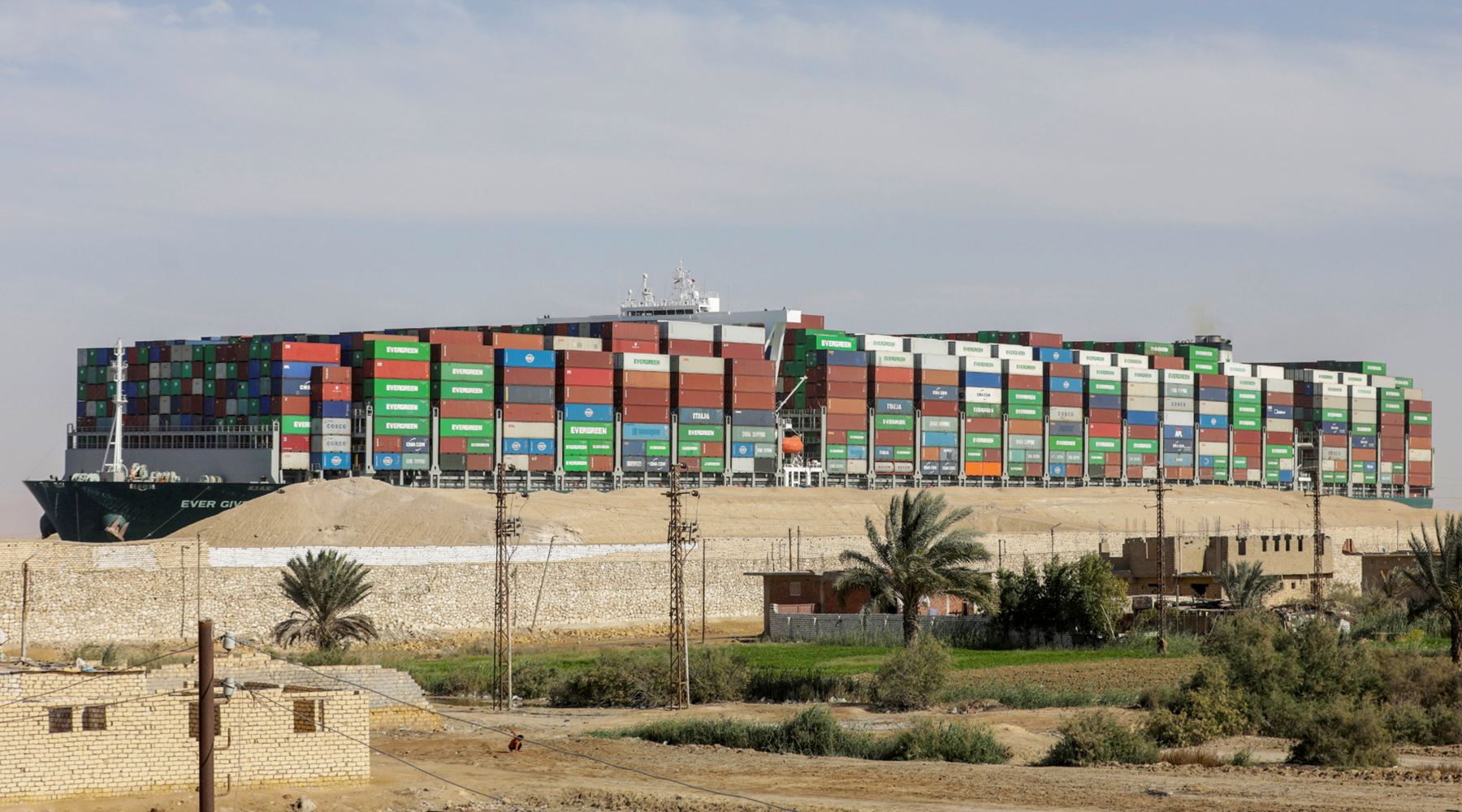Customs officers in Primorye have issued the first consignment of goods traveling from Southeast Asia to Turkey along a new transit route.
We are talking about the transportation of goods through the territory of Russia bypassing the Suez Canal.
This was reported by the Far Eastern Customs Administration.
According to the department, almost 250 containers with auto parts and polypropylene arrived at the port of Vostochny in the Primorsky Territory, then went by rail to Novorossiysk, and from there to Turkey.
As a result, the delivery time of goods has been reduced by almost half.
“The delivery time by rail between Russian ports is 12 days.
The total transit time from the port of departure to the port of arrival is 25-30 days, while with the traditional sea route through the Suez Canal 40-45 days, ”the customs press service said.
It is planned that cargo transportation along the new route will take place every week.
At the same time, the Danish company Maersk, the world's largest container carrier, is organizing the deliveries.
It is noteworthy that back in April 2021, as part of a pilot project with the Federal Customs Service (FCS), Maersk sent the first consignment of goods from Northern Europe to Asia through Russia.
A similar route in the opposite direction has been operating since July 2019 and also allows the delivery of goods twice as fast as through the Suez Canal.
Since the beginning of 2021, almost 2,000 containers have traveled along this route.
“The main advantages of the delivery of freight containers through the territory of Russia, first of all, lie precisely in the reduction of delivery times and reduction in the cost of logistics.
This state of affairs has a positive effect on the final cost of products.
In addition, the likelihood of various force majeure is reduced, as it was during the emergency on the Suez Canal, ”said Artyom Deev, head of the analytical department of AMarkets, in a conversation with RT.
Reuters
© Mohamed Abd El Ghany
Recall that in March 2021, a large container ship Ever Given traveling from China to Rotterdam ran aground in the southern part of the Suez Canal, which connects the Mediterranean and the Red Seas.
As a result, the ship completely blocked traffic on one of the most important trade routes in the world for several days.
According to the assessment of the insurance company Allianz, in 2019 about 19 thousand ships with 1.25 billion tons of cargo passed through the Suez Canal.
This is about 13% of the total volume of global trade.
According to Lloyd's List Intelligence, a vessel monitoring service, today more than 50 cargo ships with goods worth $ 9.6 billion pass through the waterway every day.
Thus, even the temporary blockage of the Suez Canal turned into massive disruptions in the supply of goods and additional costs for producers of goods.
According to Artem Deev, as a result of the incident, the total loss of the global economy amounted to about $ 10 billion. Against this background, many companies in the world are thinking about rebuilding their transport routes.
Pandemic
In addition to the Suez Canal incident, the coronavirus pandemic has been a blow to the global container shipping market.
The widespread introduction of quarantine restrictions and the suspension of a number of enterprises, and then a sharp increase in demand, led to an imbalance of equipment in the industry.
Anastasia Ratnikova, head of the container shipping department at AsstrA, spoke about this in a conversation with RT.
“There are difficulties now in Asia, the USA, as well as in European countries.
The accident on the Suez Canal only exacerbated this crisis, ”Ratnikova said.
At the same time, as the expert emphasized, at present the main criterion for the customers of transport companies is the predictability and reliability of supplies.
In these conditions, carriers are trying to more often offer a variety of options for the delivery of goods.
A similar point of view in a conversation with RT was voiced by Anna Bodrova, a senior analyst at the Alpari information and analytical center.
“The combined route through Russia, which has already been tested by Maersk, represents a certain compromise for business.
Logistic costs can be 2-3% higher than the standard route, but the road is definitely calmer, and the risks of failures are minimal, ”Bodrova said.
According to her, in the future, other carriers may follow the example of Maersk and also begin to actively transport goods through the territory of Russia as an alternative to the Suez Canal.
Alexander Daniltsev, director of the Institute for Trade Policy of the National Research University Higher School of Economics, predicts a further increase in freight traffic along the route.
“This project was discussed back in Soviet times.
The volume of traffic here, of course, is not yet as serious as on the Suez Canal, but the competition in this area is quite fierce.
The growth of supplies to the wave is possible.
The main benefit of Russia from this path is additional income, as well as the development of local infrastructure.
We are talking about creating new jobs and building service stations, ”Daniltsev said in an interview with RT.
According to him, mainly finished products, such as furniture or household appliances, can be delivered along the route.
In addition, there are opportunities for the transportation of raw materials and metals, says Artyom Deev.
“An increase in freight traffic for Russia means a higher profit under the item of GDP“ logistics services ”.
Actually, it was for these purposes that the government's efforts were directed in recent years to develop new routes, improve the infrastructure of BAM and TransSib, ”the analyst concluded.

